Ayurveda seeks respectability through Swiss diploma
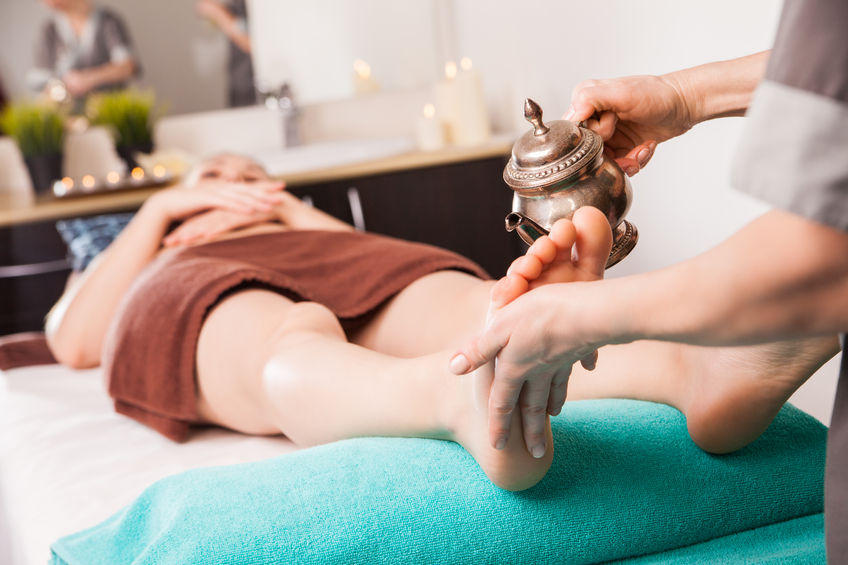
Swiss Ayurveda professionals hope that a tough exam leading to an officially recognised diploma will weed out unqualified practitioners and give the discipline more credibility.
The town of Seelisberg in central Switzerland is as Swiss as you can get. Perched above the Rütli meadow – where an oath leading to the eventual creation of Swiss Confederation was sworn in 1291 – it commands magnificent views of Lake Lucerne and the surrounding mountains. It is also home to a rather exotic institution: The Maharishi Ayurveda Health Centre that was established in 1987 by Oliver Werner, a doctor who specialises in Ayurveda.
“I practiced and taught transcendental meditation as a medical student,” Werner told swissinfo.ch. He was drawn to Ayurveda when transcendental meditation creator Maharishi Mahesh Yogi, decided to transfer Ayurveda knowledge to western physicians in the 1980s.
Werner is now an examiner for a federally recognised diploma in Ayurveda that was introduced barely two years ago. It allows those who are not physicians to acquire a professional qualification in Ayurveda as naturopaths or complementary therapists. It was a big step for the traditional Indian medicine system as Switzerland became the only western country to give the official stamp of approval to Ayurveda.
“Hotels offering so-called Ayurveda treatments have led people to think it is about massage and wellness,” says Werner. “This diploma will help people realise that Ayurveda is health care.”
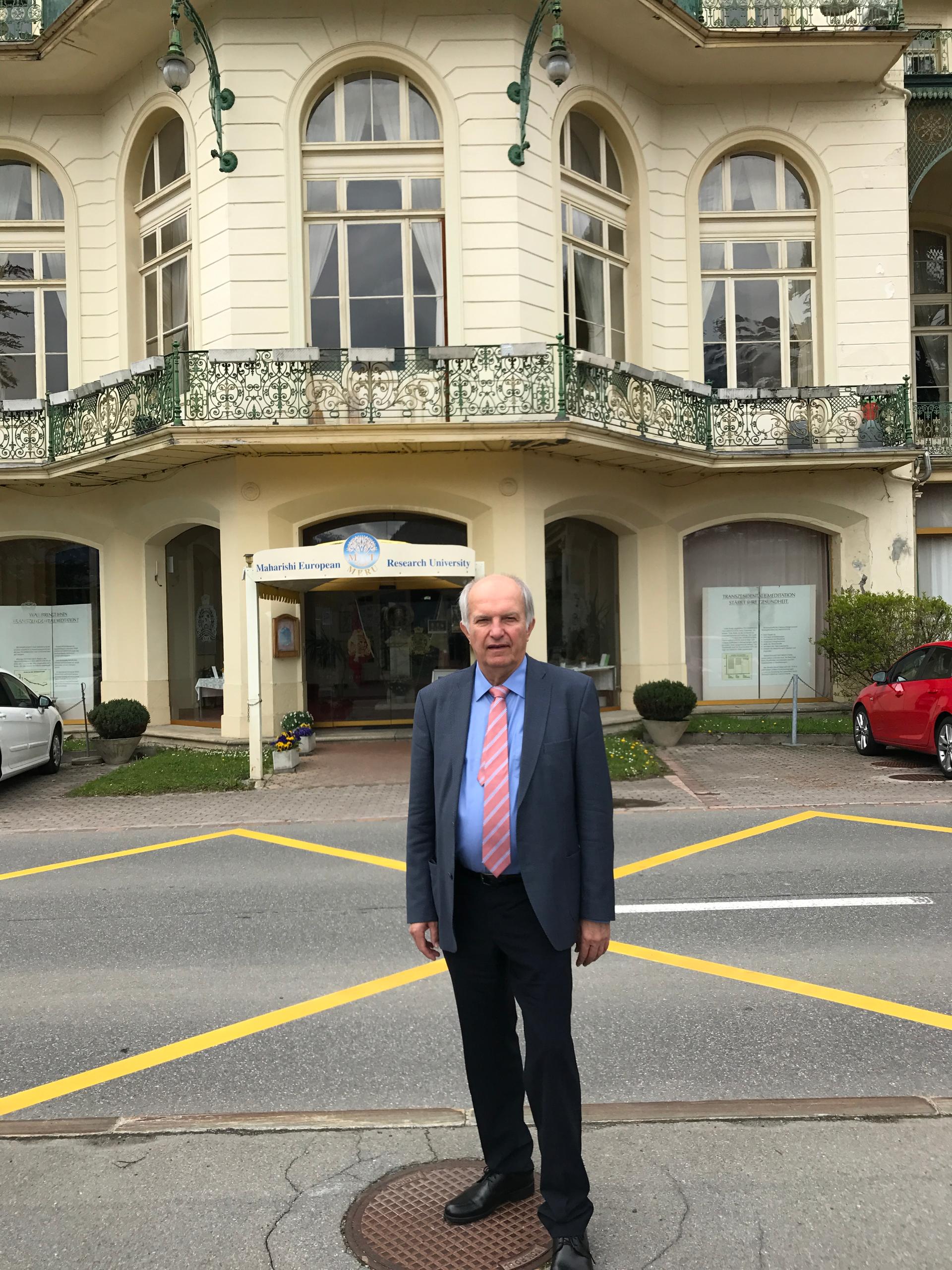
Ayurveda is a form of traditional medicine that originated in India thousands of years ago. Its name comes from the Sanskrit term for “knowledge of life” and its practitioners strive to treat the cause of an illness rather than its symptoms.
Using primarily herbal medicines, Ayurveda combines preventive health care, healing and a healthy life philosophy. Treatments can include long-term detoxification programmes as well as quicker pick-me-ups, like oil massages designed to rejuvenate.
What does one have to do to get the diploma?
To even take the exam for the Ayurveda diploma, applicants must possess a training certificate from a recognised institution and have practiced Ayurveda for at least five years. The exam itself is a series of four separate tests: candidates have to write a case study on a patient they have treated for six months, take an oral exam on the same, diagnose the ailment from a theoretical case study, and finally examine a real patient under the watchful gaze of the examiners.
“The examination is not a test of knowledge but of ability. Between a quarter to a third don’t pass,” says Werner.
Candidates don’t just have to be proficient in Ayurveda. They must also have a basic knowledge of modern medicine including anatomy, physiology and pathology. This grounding in modern medicine helps Ayurveda practitioners understand the limits of traditional healing practices. Seriously ill patients must be sent to a doctor.
Most of the examinees are already practicing naturopaths. Those without enough experience in naturopathy must take a course before they are eligible to take the exam for a diploma. This usually involves around 800 hours of training in Ayurveda and a similar amount in modern medicine, followed by two years working under the guidance of an experienced professional.
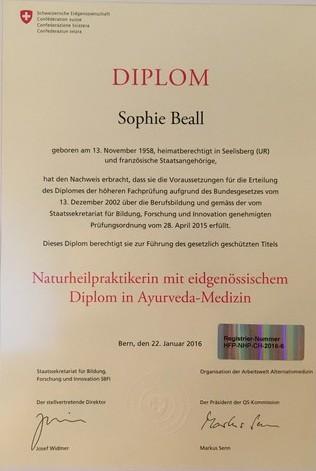
Switzerland offers two types of Ayurveda diplomas. The advanced one is that of an Ayurveda naturopath where diploma holders can diagnose ailments and prescribe treatments such as herbal preparations. Other naturopath diplomas recognised by the government include homeopathy, traditional Chinese medicine and traditional European medicine.
The second diploma is that of an Ayurveda complementary therapist. They provide specialised treatments like oil massages to healthy people or those with small complaints but are not allowed to diagnose a disease. Other complementary medicine diplomas recognised by the government include yoga, shiatsu, craniosacral therapy and eutony.
Exams for both diplomas are held twice a year at an educational campus in Sursee in canton Lucerne and conducted in three Swiss national languages: French, Italian and German.
Selling the brand
The diploma has been introduced to set standards, and ensure patients are being treated by professionals. However, there seems to be little evidence that patients are aware of the existence of the Ayurveda diploma.
“Most people I speak to have no idea that it exists,” says Sophie Beall, head of the Maharishi Ayurveda Centre who is also an examiner for the Ayurveda diploma. “I have put my own diploma in my waiting room so people become curious and ask me what it is.”
She is confident that those in the health sector have taken notice though.
“Some of the insurers that have been resisting reimbursing Ayurveda treatment costs have now introduced it in their complementary health insurance plans,” she says.
Beall hopes that the diploma will result in more insurers covering Ayurveda and that it leads to a more standardised criteria on reimbursement of Ayurveda costs. Another big ambition is getting Ayurveda included among a select group of five alternative medicine systems – homeopathy, holistic medicine, herbal medicine, neural therapy and traditional Chinese medicine – that are currently included under Switzerland’s mandatory health insurance (provided they are administered by a doctor).
However, the ultimate aim is getting hospitals, clinics, insurers and patients to view Ayurveda as a part of a holistic health care system.
“If people adopt Ayurveda knowledge in their daily life and improve their general health the whole load on the health care system will reduce and that is the goal we are striving towards,” says Werner.

In compliance with the JTI standards
More: SWI swissinfo.ch certified by the Journalism Trust Initiative
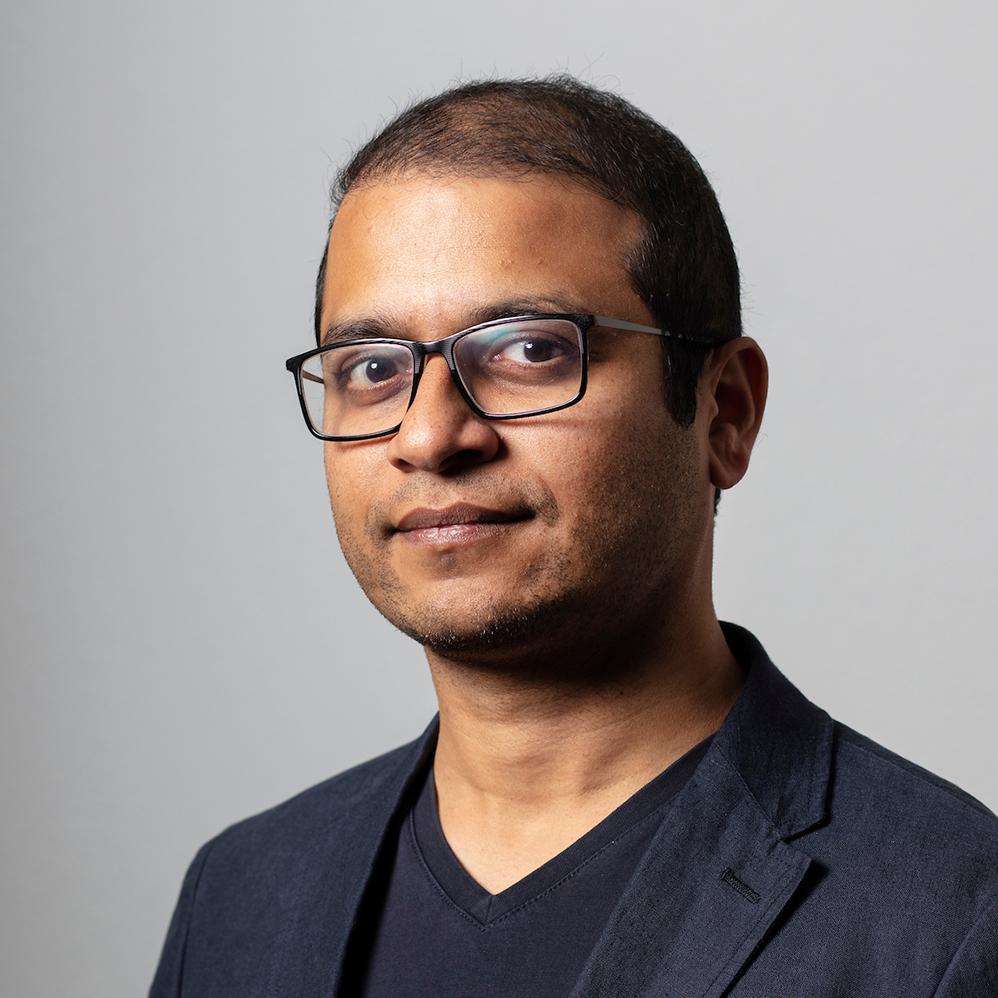
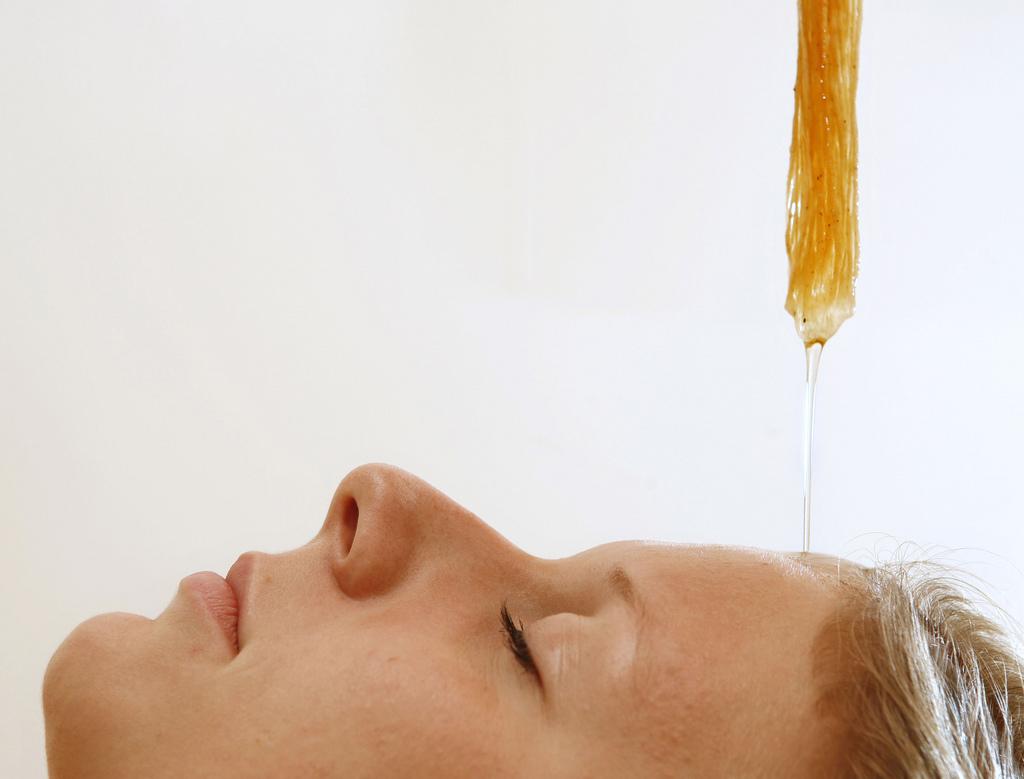
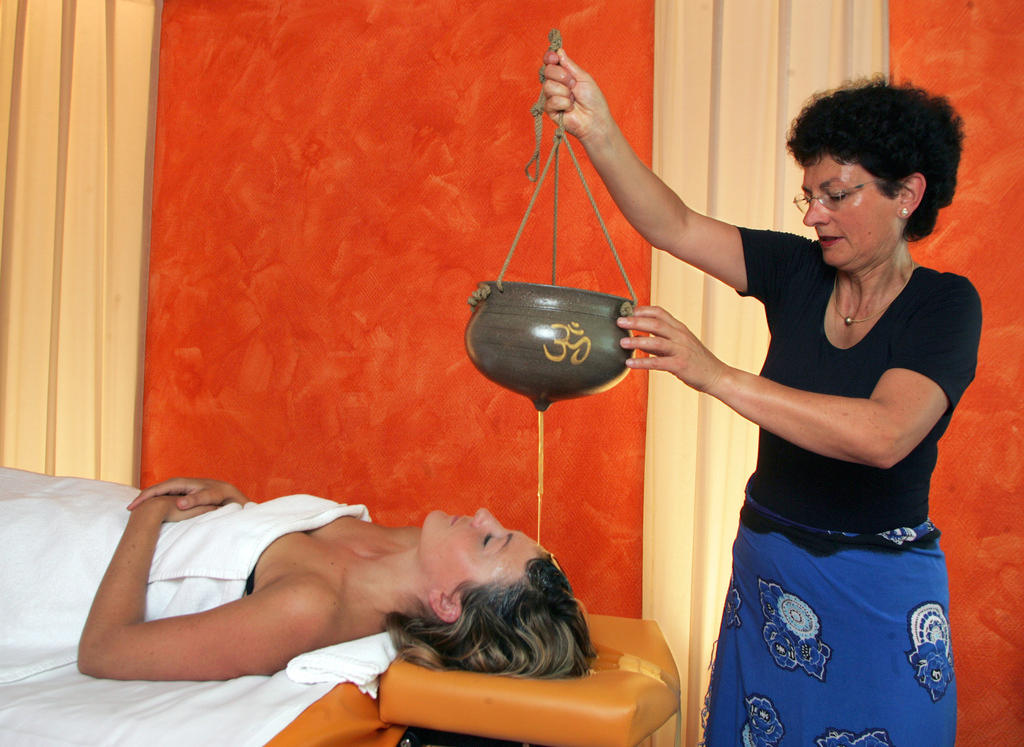

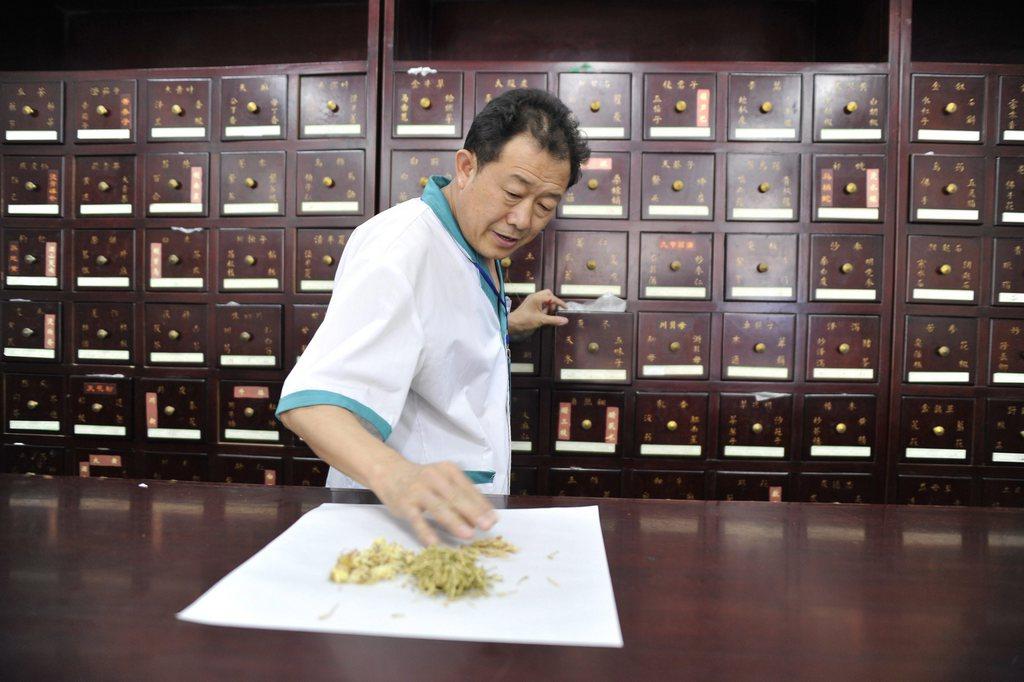
You can find an overview of ongoing debates with our journalists here. Please join us!
If you want to start a conversation about a topic raised in this article or want to report factual errors, email us at english@swissinfo.ch.